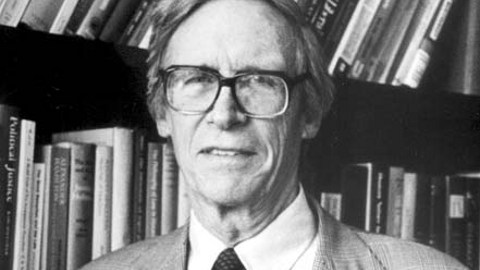States, Markets, and Basic Liberties

Ned Resnikoff picks up on my old post, via a terrific recent one by Daniel Little, on the radicalism of John Rawls’ position on economic liberty:
If we’ve to fairly evaluated Rawls’ decision to include all of those [political and civil] rights while excluding things like (in Wilkinson’s words) “[t]he freedom to buy and sell, to enter into contracts, to start a business, to hire and be hired, to save and invest, to trade freely across borders,” etc., then we need to consider what all of Rawls’ basic freedoms have in common that those economic freedoms do not. The answer, I think, is this: the economic freedoms that Wilkinson mentions are all tied up in the concept of the market — most of them (except maybe the right to private property) become more or less unintelligible unless we assume a market exists.
Rawls seems to be assuming that the state exists prior to the market, and so we must consider what sort of rights are built into the fabric of the former before we can even talk about the latter. In order to challenge this view, you might argue that markets mimic a sort of state of nature that exists prior to the state, and that the state then exists to protect or curate this environment. And while I won’t deal with that here — I just wanted to demonstrate a present a plausible justification for Rawls’ position– I will note that the recent work of Dean Baker and David Graeber, among others, would seem to point very far in the other direction.
I don’t think this is quite right either as a matter of philosophy or Rawls exegesis.
Rawls’ two principles are supposed to be the output of the imaginary deliberations of imaginary characters with certain imputed interests in a context of selective uncertainty. The economic liberties get short shrift not because Rawls thinks first we have the state and then we have the market. They get short shrift because Rawls does not think that robust economic rights and liberties are necessary for the satisfaction of his imaginary characters’ imputed interest in the conditions for the development of their “two moral powers.” These are (1) the sense of justice (the disposition to accept reasonable constraints on self-interest, more or less) and (2) the capacity formulate and act upon a personal idea of the good life. Distracting Rawlsian machinery aside, the claim boils down the idea that economic rights just aren’t very important for our ability to live good lives with one another on mutually agreeable terms.
I think Danny Shapiro was the first to attack this argument in a detailed way. Jerry Gaus and John Tomasi have more recently had their whack at it. But my point isn’t that Rawls is wrong, though he is. My point is that this debate has nothing much to do with the question of whether the state precedes the market, either logically or historically.
Of course the state doesn’t precede markets, logically or historically. But, of course, the actual markets of actual capitalist societies don’t and didn’t simply rise from the primordial social ooze without explicit legal elaboration backed by the violence of the state. Libertarians can and ought to accept the idea that the legal structure of actually-existing markets doesn’t come within a trillion miles of the structure that would be prescribed were robust economic rights and liberties to be treated as “basic” in Rawls’ sense. And they can accept that the way the actual law of the actual state actually defines our actual market institutions is exploitative, has baleful distributive consequences, and, moreover, actually is subject to democratic discretion that ought to be exercised to make our society fairer and better. They can accept all this without accepting any sort of Sunstein-Holmes or Nagel-Murphy nonsense about the conceptual incoherence of negative rights or the essential dependence of economic rights on the state.





